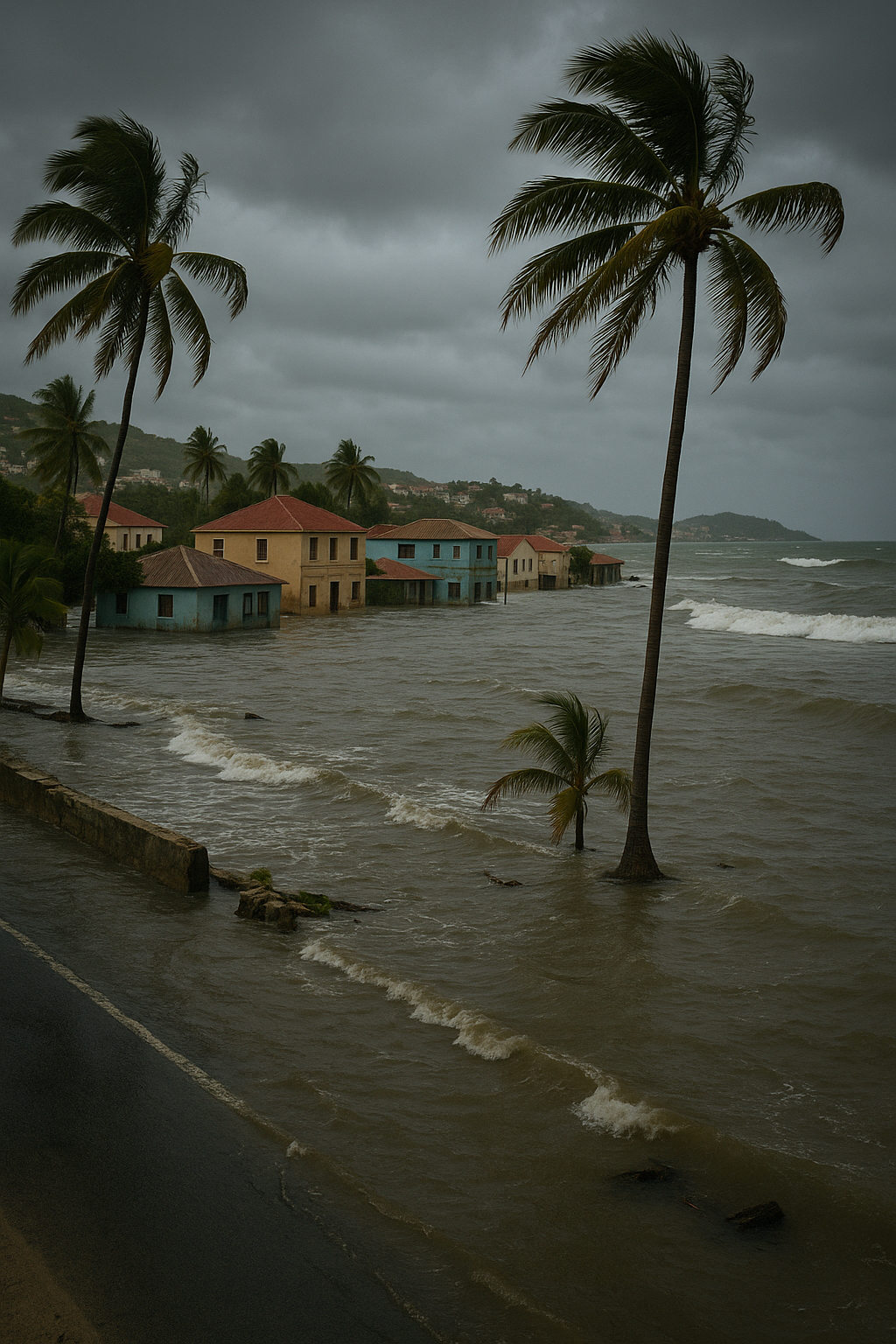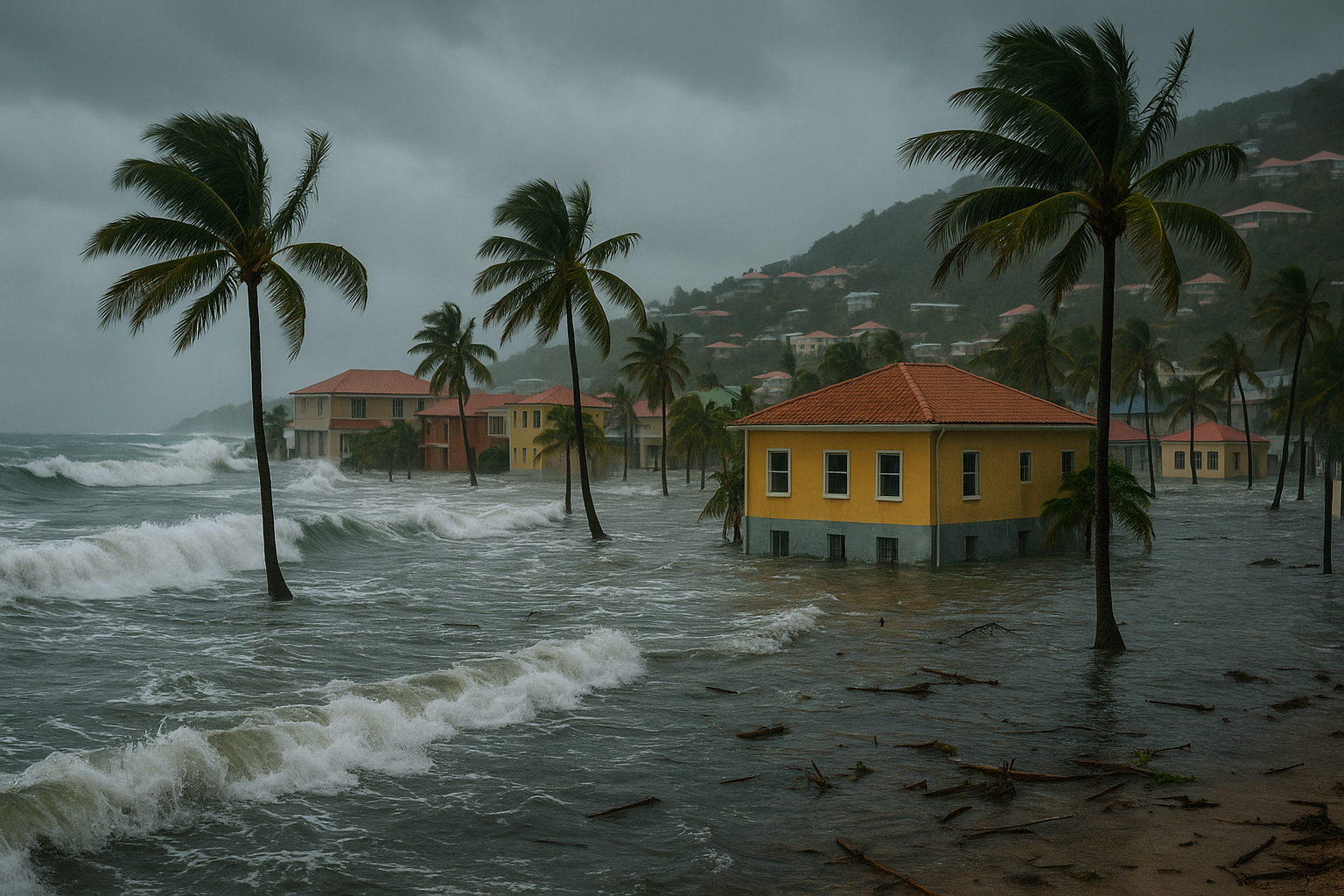Advertisement

PHILIPSBURG — More than seven years ago, in June 2018, the seventh annual Governor’s Symposium dealt with an interesting, if not outright alarming, topic: the effect of climate change on St. Maarten. Nobody lost a night’s sleep about it because, after all, the sun kept shining and the cruise industry brought hordes of tourists to our island. Politicians turned a blind eye to the dangers that are staring us right in the face, albeit further down the road.
And yet, during this symposium we heard stuff like “the time to act is now” and (from then Governor Drs. Eugene Holiday): ”I believe we are running out of time in terms of taking measures.”
A lot of the information presented at the symposium was not even new because five years earlier the Nature Foundation had already published the results of a study that should have inspired politicians to take action; but they did nothing at all.
The Nature Foundation study projected that in the next 20 to 50 years (a window that has now narrowed to 8 to 38 years) rising sea levels would wipe out all of St. Maarten’s beaches; the seawater would also flood the airport and the harbor and all other low-lying parts of the island, including Simpson Bay. The Lowlands would become a separate island.
The year 2030 is not that far away anymore, so the observation that “the time to act now” was on the mark. But ever since the publication of the Nature Foundation-report and the Governor’s Symposium successive governments and all political parties all found more important things to do.
The Governor’s recommendations are still valid today. He proposed the establishment of a climate change agenda as part of a regional and international approach. Some of the ideas put on the table were increased investments in greater energy and infrastructure resilience and environmentally sustainable solutions. “By acting now, we can save the day for future generations,” Governor Holiday said.
If sea levels keep rising – and there is no way to stop this development – St. Maarten will go from a thriving community to an island of beggars – if there is an island left to begin with of course. Without beaches and with the port and the airport under water, the tourism industry will collapse and so will the government’s revenue.
After all this time, there still seems to be a lack of awareness about the seriousness of the threat that is coming our way. One politician, asked about a possible flooding of the airport, shrugged his shoulders and said: “Oh well, we’ll simply make the runway a little bit higher.”
In spite of all this, our politicians have not made a single effort to put climate change on the agenda. This brings to mind the words of Dutch prime Minister Hendrik Colijn during the thirties of last century: “Quietly go to sleep as you do on other nights. There is no reason to worry.”
Colijn spoke these words in 1936, four years before the Germans invaded the Netherlands. The rising tensions in Europe were no reason to panic, Colijn said, adding that his government was alert.
It is obviously senseless to compare the threat of German aggression with the threat of climate change but it remains remarkable that in both instances politicians did what they do best when the going gets tough: nothing.

###
Related articles:
Climate Change news articles archive>>>
7th Governor’s Symposium Climate Change and Small Island States – A Call For Strategic Action
British comedy sketch: “Sir Humpfrey vs Climate Change”
###
ADVERTISEMENT







